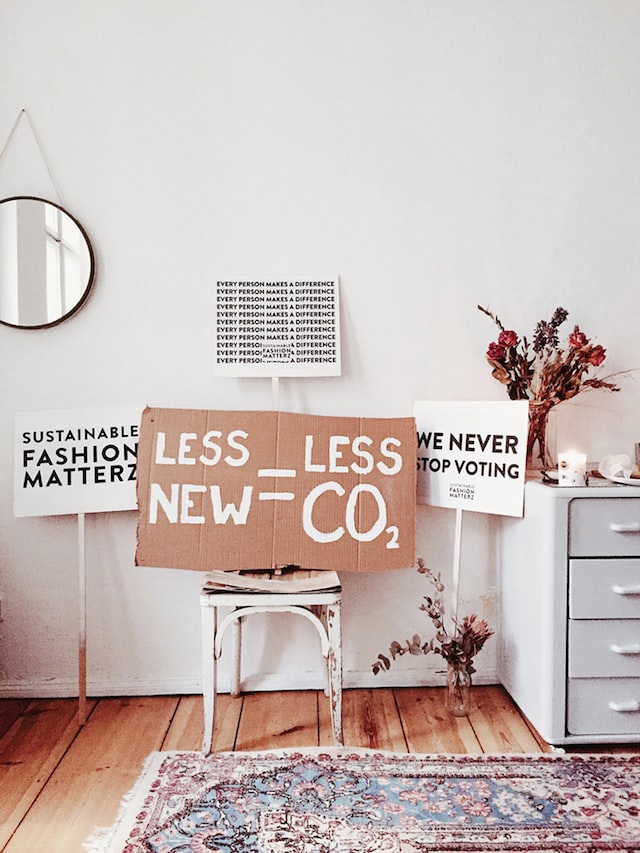This article is about not falling for the faux-green, overly marketed scheme of sustainable living. It is about the many promises that companies and figures in pop culture of lifestyle nails burnsville mn make when it comes to global warming and sustainable living, but which are never actually carried out upon by their own business practices. It is about how celebrities who preach sustainability seem to be as guilty of eco-hypocrisy as those who refuse to save the planet. The article provides a detailed listing of all sorts of false positives that promote sustainability to consumers, such as using reusable coffee cups or owning a car that drives on gas instead of diesel fuel.
1. The first example of eco-hypocrisy cited in this article is the fact that many coffee shops, restaurants and bookstores all over the world offer customers a choice to purchase reusable mugs.
I made all the same choices when I lived in a coffee shop, especially at places like Starbucks. I chose to buy my coffee in a paper cup instead of going green and using my own reusable mug. Why would I want to be “greener” than my environment?
Another reason people choose not to go green is because they don’t know how! When I bought my reusable mug, it was very confusing for me – being used to being able to use the smallest container made sense while carrying around a large paper cup always seemed wasteful.
2. This brings us to the third reason for why people choose not to go green: it is too confusing.
I also bought my reusable mug because it was $10 and I didn’t think I would use it enough to make it worthwhile.
This is the Green Paradox at work, which states that “people who are more eco-conscious are also likely to consume more virtual goods.” This means that with more people being influenced by consumer culture, businesses have shifted from selling physical products (such as coffee, tea, or even chocolate) to selling a psychological idea of what these products can do for someone (like filling them with a warm fuzzy feeling about being environmentally friendly).
3. The fourth reason cited for the lack of popularity of environmentally friendly products is that those businesses that claim to sell them can’t actually deliver.
A friend once told me, “I don’t have time to buy a reusable mug for my morning coffee when I should be working on my creative writing.”
That’s exactly how I feel about buying sustainable living products at this point in my life. It is just too much effort to make all the excuses and move myself into a lifestyle of “green” living.
4. The fifth reason cited for lack of popularity is money!
People are not willing to spend money on such things because they already have enough – any product that came from the Earth would be an indulgence their own lifestyles could not justify. I know this is true because I once chose to not buy a reusable water bottle at the University Co-Op. Instead, I reused plastic water bottles that I already had.
5. Another reason cited for the lack of popularity of sustainable living is that many celebrities and brands that market these products do the same unsustainable things in their own lives, which frankly makes them look hypocritical.
This advertisement for a collection of items made of recycled plastics by Glossier is an example of such hypocrisy – they might appear organic and “green” but they’re just like any other consumer brand – they just want to make money off of helping others be sustainable.
6. The final reason cited for lack of popularity is that many of these products will not help to save the planet.
I am pretty disappointed with myself for using disposable cups or bottles when I really should be buying reusable ones. This is because there are numerous studies that have shown that recycling plastic bottles will only reduce the amount of plastic on the planet by a small percentage. This means that instead of helping to save the environment, I just might be making it worse!
7. The Green Paradox states that “people who consider themselves more sustainable are also more likely to consume more virtual goods.”
I am guilty of the Green Paradox! I have been obsessed with consuming other people’s media products in order to reduce my own personal footprint.
Another reason why this is a problem is because of the 500 million hours a year people spend on Facebook checking their newsfeed. This fact was cited in an article by The Economist that stated that “people who spend more time on Facebook are less likely to believe climate change is real.”
Summary:
These are some of the most common lies that people tell themselves, in order to justify their eco-unfriendliness.
The world is incredibly wasteful and hypocritical when it comes to people making eco-friendly choices, as evidenced by the Green Paradox. Not only do many celebrities claim they will save the planet while they drive around in their cars using fossil fuels, but others make products that help people live sustainable lifestyles but few ever actually use such products.
People tend to buy goods at companies that market themselves for being sustainable, like Glossier or Etsy, but then choose not to use them because the goods are too expensive or inconvenient for travel or use day to day.











